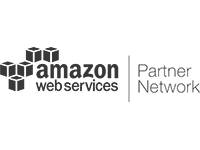Be flexible with your staff without giving away the farm
Most job seekers today are savvy shoppers—looking for the right employer with the right work and right benefits for them. Some are in pursuit of higher salaries, but, increasingly, professionals are looking for a good work-life balance when they’re making decisions about where to work.
Offering the ability to work remotely might seem like an easy benefit to offer. Nearly everyone has a phone, computer, and internet access. It’s fairly easy to imagine that, for most work days, a staffer could be just as effective sitting in his basement as he would be sitting at his desk in one of your offices. Employees can connect to your network, access your systems, and transact with colleagues, suppliers, and customers from anywhere.
From the standpoint of your data and systems, however, a remote working benefit could make your data less secure. Think about it. Each remote device is an opportunity to connect to an unsecure network. Each remote worker might also be more willing to take risks on the sites they visit throughout the day. And it’s also hard to create a “culture of IT security” if your workers are spread out across multiple sites.
Before you go to HR to shut down that new work-from-home policy, take a look at how one company—who housed incredibly sensitive data—was able to safely give their workforce the work-life balance they needed to stay engaged and motivated in their jobs.
It doesn’t get much more sensitive than this
Let’s talk about an example where a company that deals in extremely sensitive personal information created the infrastructure needed to offer its growing workforce a work-from-home benefit.
This company provides personal background checks for employers and immunization checks for students. They maintain an extensive database of confidential information that’s also closely integrated with law enforcement and healthcare networks. They also have to comply with regulations about the type of information they collect. Attacks on their systems would mean that not only is their sensitive data at risk, but also other sensitive partner networks could be vulnerable. And ultimately, being non-compliant might mean the company could be out of business.
The company decided to adopt a flexible schedule policy for their 150+ employees, including the option to work from home. You can imagine the security risks there. In addition, they needed to figure out how to manage the productivity of employees who may not be in the office each day.
“Securing” a work-life balance for all
To make this happen, the company turned to LanScope Cat, which enables businesses to manage employee productivity through policy enforcement and endpoint protection in an all-in-one solution. With LanScope Cat implemented across the company, their IT team could easily protect Windows and Mac laptops that were being used remotely. For example, they can monitor and manage internet access to ensure that employees are visiting legitimate, work-related sites and not engaging in risky behavior that would open the company up for attack. Using LanScope Cat’s security features, they can detect and protect remote computers from malware. Supervisors benefit from LanScope Cat’s employee monitoring features that record when and for how long remote employees log into business systems to help managers oversee their remote workforce.
With LanScope Cat, this organization was able to have the best of both worlds. Employees could have more work-life balance and the company’s data, partners, and reputation stayed safe.





